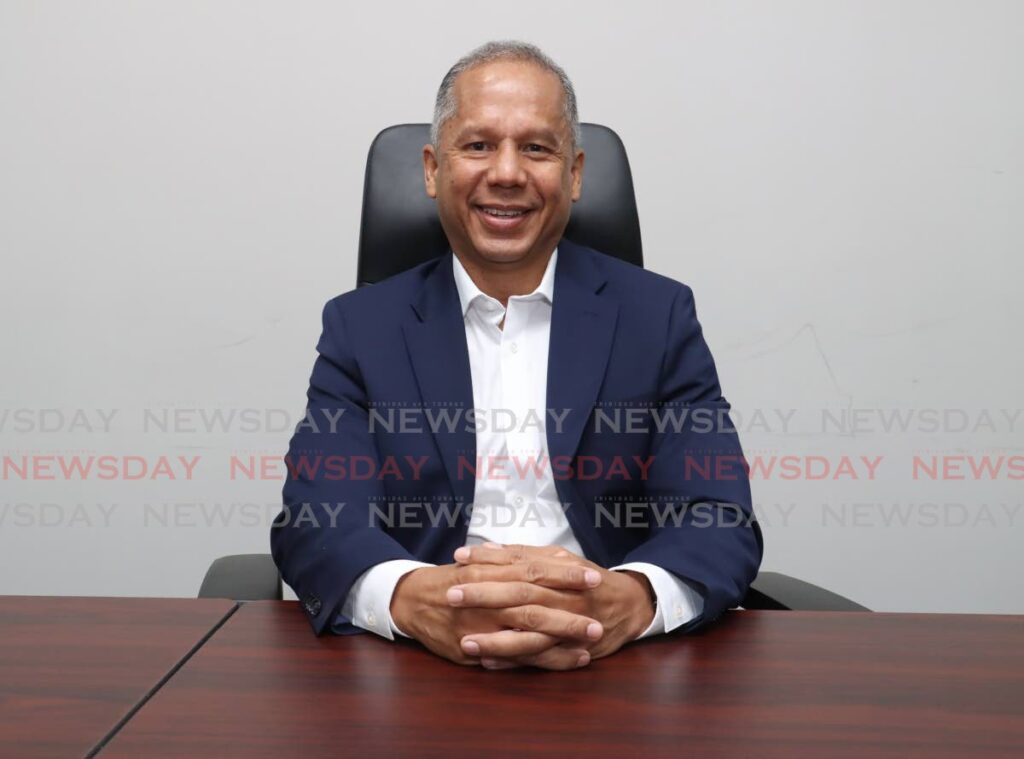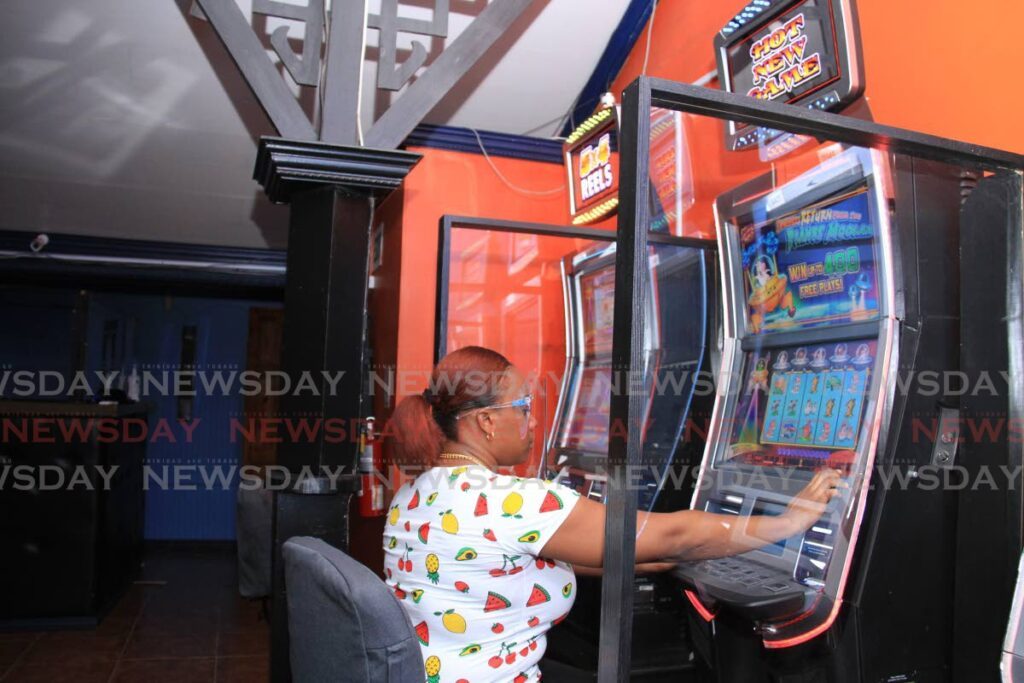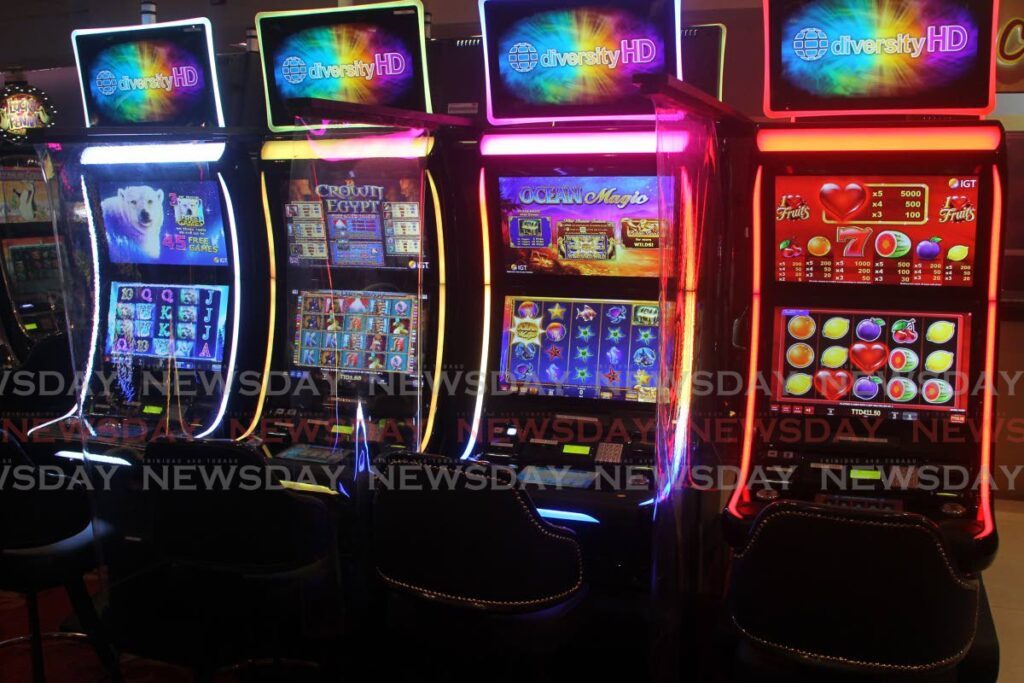Gambling Control Commission seeks to protect people

Stephan Tang Nian, chairman of the Gambling Control Commission has said if the Gambling (Gaming and Betting) Control Act is fully proclaimed, the commission will be able to regulate gambling venues and protect people from bad actors in a largely unregulated industry.
In a conversation with Business Day in June, Tang Nian said the commission will seek to collaborate with the industry, to regulate it to the point where the industry is fair and crime-free.
However, while the commission is doing everything it can to establish itself, there is one thing missing – full proclamation of the act which aims to protect consumers, minors and vulnerable people from being exploited; prevent gambling from being an avenue for criminal activity and give the gambling industry an opportunity to contribute to the economy by creating employment and collecting taxes.
Tang Nian, whose 30-year experience in finance includes eight years of leadership in the banking industry, expressed concern that, at this point, where the commission has no regulatory powers at all, there may be bad actors that need to be weeded out. He said with the full proclamation of the act, the commission will be able to perform one of its main functions – to trust, but verify everything that is happening in gambling and betting venues.
Trust but verify
The Gambling (Gaming and Betting) Control Act was partially proclaimed in August 2021, giving allowances through parts I, III and X of the act to establish the Gambling Control Commission and recruit officers. Under the act, eight board members, including Tang Nian, were appointed in 2022.
Since then, the commission has been building itself from the ground up, getting everything needed to become a full regulatory body – from a building, to staff, to equipment and programming for monitoring establishments and accounting.
Tang Nian said the legislation that currently governs the industry was drafted back in the 1960s.
“These industries have grown here, but the legislation was outdated. So as we operationalise the commission, we will come to a point where we will advise the minister that we recommend the rest of the act be proclaimed.”
Under the current regulations members clubs and bars with betting machines are required to pay taxes to the Board of Inland Revenue (BIR) under the Income Tax Act, but should the 2021 act be proclaimed fully, these venues will have to pay taxes directly to the commission.
Tang Nian said this raised a red flag for the commission, because in researching the industry, it had noticed disparities between what is being paid in taxes and what should be paid.

He said the structure of the tax was put in place in 2013, and in 2021 the taxes were doubled. Under the 2021 act, casinos or private members' clubs must pay $120,000 per year for every roulette table or electric roulette table and $24,000 a year for every slot machine. For bars with amusement machines (slot machines with lower payouts and denominations for betting), bar owners are required to pay $6,000 a year each.
In the 2021/2022 budget, Minister of Finance Colm Imbert estimated the gambling industry could be worth $16 billion, with tax collection reaching as high as $500 million a year.
But Tang Nian said in 2023 the revenue collected from private members clubs was a little over $9.6 million.
The BIR collected a little over $4 million from the amusement sector.
Data from the Customs and Excise Division said between 2017 and 2022 more than 13,000 slot machines came into the country.
If you think that doesn’t add up, you’re correct.
Business Day checked, and taxes on that number of machines would come up to $312 million.
“Of those machines some could have been exported, but a simple calculator could tell you, if all these machines are in service, how much should be paid.”
Tang Nian said one of the first things the commission has to do, once given its full powers, is a compliance exercise which would require casinos and bars with betting machines to report all machines to the commission.
“For the first three months after the act is proclaimed, there will be a transition period whereby all the entities have to report the machines they have to us,” he said. “We will then issue various licences, after doing various checks and so on. After they are licensed, we will have our compliance and enforcement going out to make sure that all the various establishments are in compliance with the terms and conditions of their licence.”

He said the commission is hoping for transparency, but will do what is necessary to confirm the information it gets.
“Someone said, 'Trust – but verify. We will take what they tell us, but we will verify also. Hopefully at that point in time we will understand why there is a disparity. We will be able to explain it or people will have to pay what is due.”
He also said detecting and stamping out any money-laundering regimes is also an important part of the commission’s mandate.
“The reality is there could be money laundering within the industry. That is something that we have to try to detect and stamp out. We will do our part.”
He said the Financial Intelligence Unit, a specialised intelligence-gathering unit within the Ministry of Finance, is still the supervisor of anti-money laundering measures.
Protecting people
The commission’s mandate goes further than simply collecting taxes. Its main function is to protect people – the consumers, employees, and business owners who are all key stakeholders of the industry.
One of the major issues in the industry is gambling addiction. Tang Nian said the commission, mandated through the act, also seeks to protect people not only from bad actors in the industry but from themselves.
“For me, one of the biggest things we have to deal with is gambling addiction. People who I’ve interviewed have talked about friends, family, people they know who have a problem with gambling.”
He said the commission, once given its powers through full proclamation, will do several things to combat gambling addiction, including education drives and self-exclusion programmes.
“If I know I have a problem, I could come to the commission and say, 'I want to be excluded from entering establishments.' We can make a contract and you will say for how long. We will send the information out to the establishments so they will know that if you try to enter they could refuse your entry.”
He also said verification of employees' ages and legal status, given that many immigrants go to the casino industry for employment, would also be one of the mandates of the commission.
“We do not want the exploitation of minors. We will look for the exploitation of people. Part of our mandate is, if crime and criminals have infiltrated the industry, we will remove those people.”
Part of the strategy to ensure that everything remains above board in the industry is the issuance of several licences under separate categories. For example, the gaming operator’s licence will be used for running a gaming establishment; the betting operator’s licence would be for the operation of betting shops; and and bookmakers' and promoters' licenses to run betting activities.

He added that monitoring of tables and slot machines would also be under the commission's remit to ensure conflicts could be resolved. It will also monitor and verify software for approved gambling programmes, to ensure the machines are working as they should.
“The commission will have the power to ask for tapes from establishments and review them,” he said. “That way, hopefully, disputes could be resolved before they escalate."
Tang Nian also called for gambling establishments to work with the commission so that everyone could be a winner.
“One of our buzzwords is collaboration. We want to collaborate with the industry and we want them to collaborate with us. We are not here to close anyone down. We are here to regulate and see the industry grow, but we want to level the playing field for people who are actually doing the right thing.”

Comments
"Gambling Control Commission seeks to protect people"